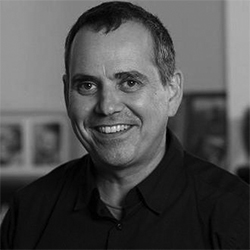Avishai Sharlin, Division President, Amdocs Technology, explains how Amdocs’ transformation journey has prepared us for this moment.
Avishai Sharlin will speak more about this during the Human Factor session at #TMFDigital on Wednesday, October 21. Learn more about Amdocs’ catalyst projects, award nominations and speaking opportunities taking place at the virtual event.
COVID-19 has been an equalizer in many ways. It’s making all companies take a closer look at how they deal with such times.
Changing the culture of a company to embrace transformations, new ways of working and thinking is perhaps the hardest challenge for any organization to face. Concentrating on creating an environment to foster this change is critical. Especially when uncertain times throw a curveball at your business. Historical events, including the current COVID-19 epidemic, can change the way businesses function forever.
At Amdocs, we’ve gone through many changes over the past few years. We’ve been transforming the way we work to ensure our teams are ready for disruption at any given time.
Our transformation journey
Transformation is a continuous journey. It’s a process taking place daily to change the way we work, think and develop. Three years ago, well before the coronavirus pandemic, we aimed to transform our capabilities, expertise and people. We anticipated the future of software development would require a radical change in our then modes of operation.
On the “human” side, my team was tasked with changing the organizational culture of our employees in a short time. After working closely with major Silicon Valley companies and industry experts, we decided to adopt new methodologies such as cloud native technologies, including developing in microservices and embracing DevSecOps and SRE concepts. To help our employees succeed, learning tools and the adoption of the latest technology platforms were critical.
On the technology side, we re-platformed our product suite to be open and modular and cloud agnostic based on a domain-driven design approach. It changed our product release cadence from over a year to as little as four weeks, and we can upgrade pieces of our customers’ technology stack at the velocity needed. By adopting open source, inner source, embedded AI and the latest CI/CD tools and knowhow in our product development process, we can move quickly at times of crisis to help our customers keep billions of consumers connected.
From a customer journey perspective, we learned from the best, worked closely with Stanford D-school and altered the way we solve problems. By integrating design-led thinking to look at the end-users’ needs, establishing a leading user experience center of excellence, we achieve the right solution from the very start.
Leading the industry transformation to the cloud
More than 7,000 of our employees are now DevOps qualified. And in coordination with our customers, we’ve achieved DevOps working maturity in over 75% of projects. From our learnings, we developed a state-of-the-art platform, MS360, to manage all aspects of the microservices lifecycle, ranging from SDK and CI/CD to addressing operational elements.
As a result, we have been able to introduce new, industry-leading, telco-grade, mission-critical solutions, which are open and modular. They harness the newly developed expertise and capabilities of our transformed organization to power the digital evolution of our customers. In doing so, we’re leading the shift to the cloud at an accelerated pace with a host of new SI practices, offerings and solutions.
Weighing risk and reward
The communications and media industry is taking incredible measures to serve our society in these uncertain times of COVID-19, ensuring the world’s population has connectivity and access to crucial information, as well as entertainment. Due to our ongoing transformation, we are well-positioned to adapt to this environment and assist the industry.
Any business transformation is a significant leap of faith. But adopting a constant change mentality creates the ground for opportunities and can better prepare all of us for whatever the future holds.



